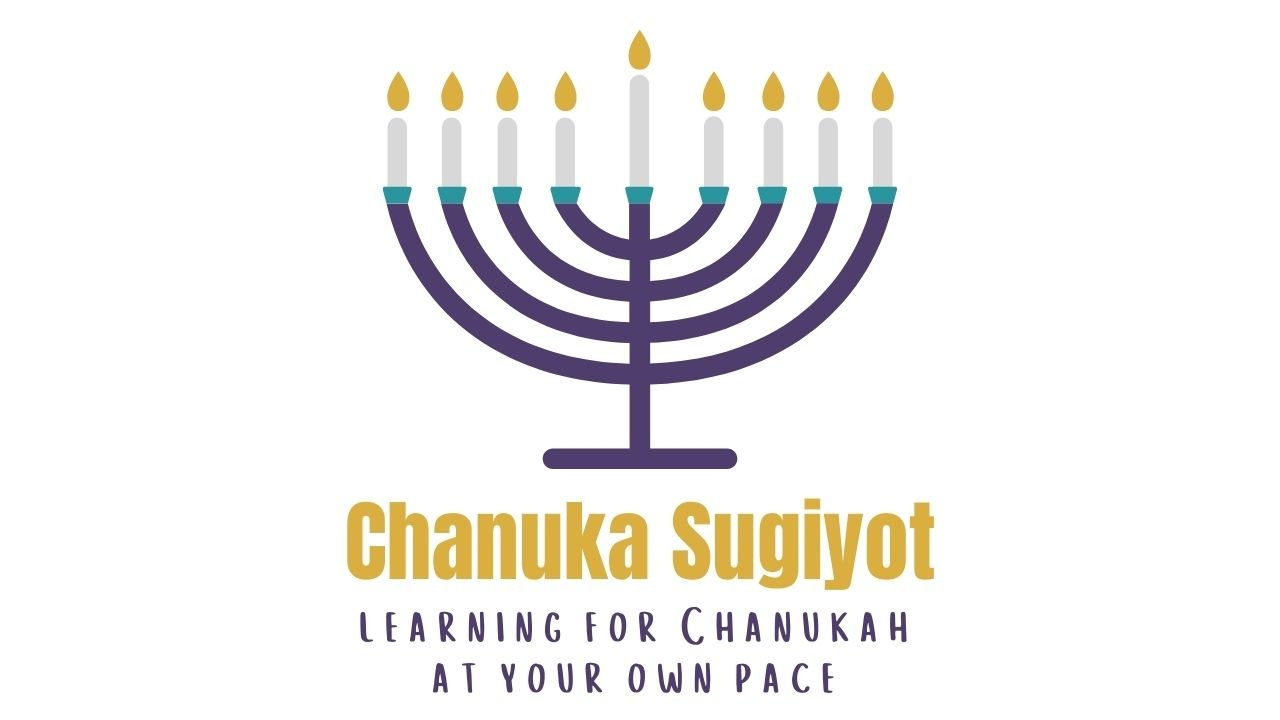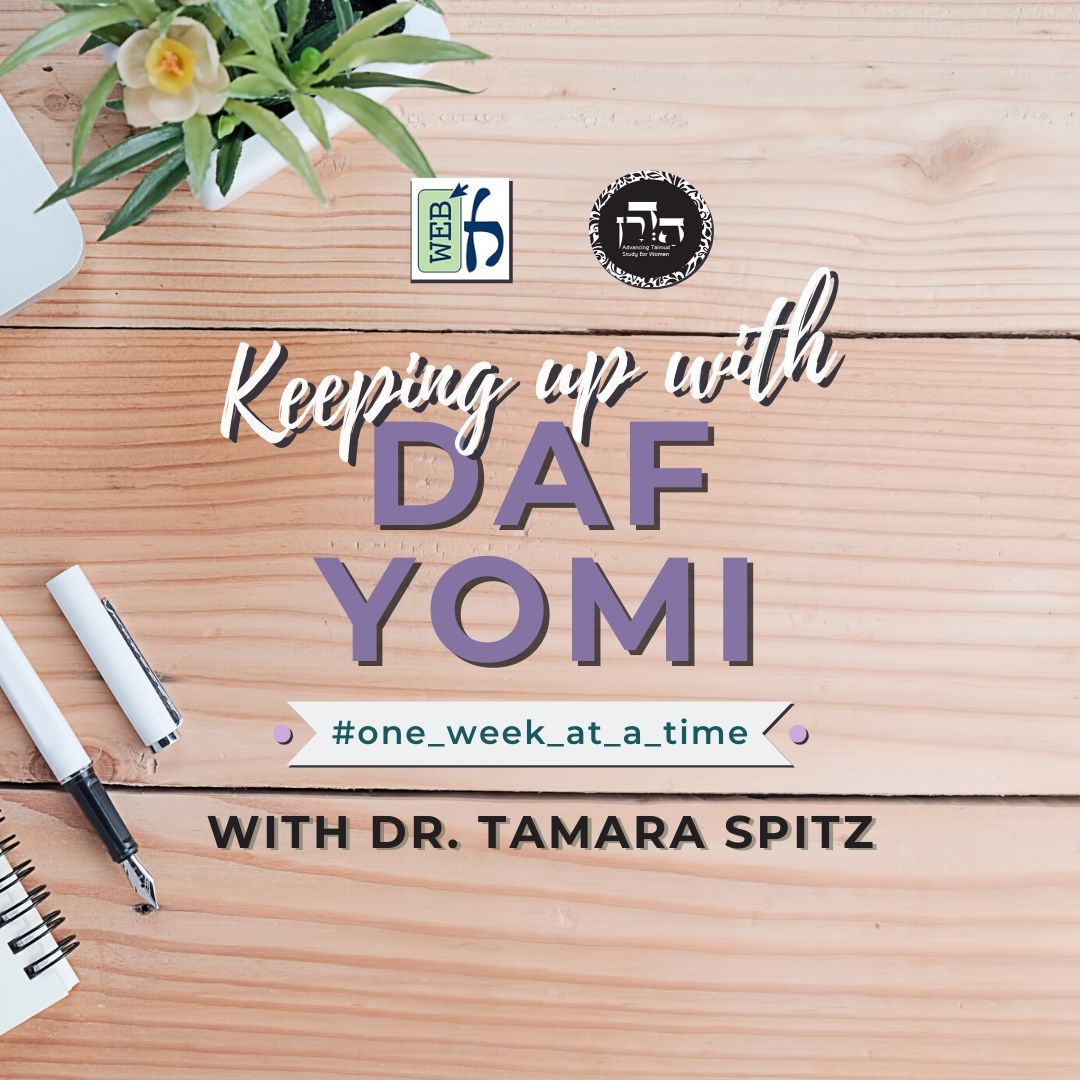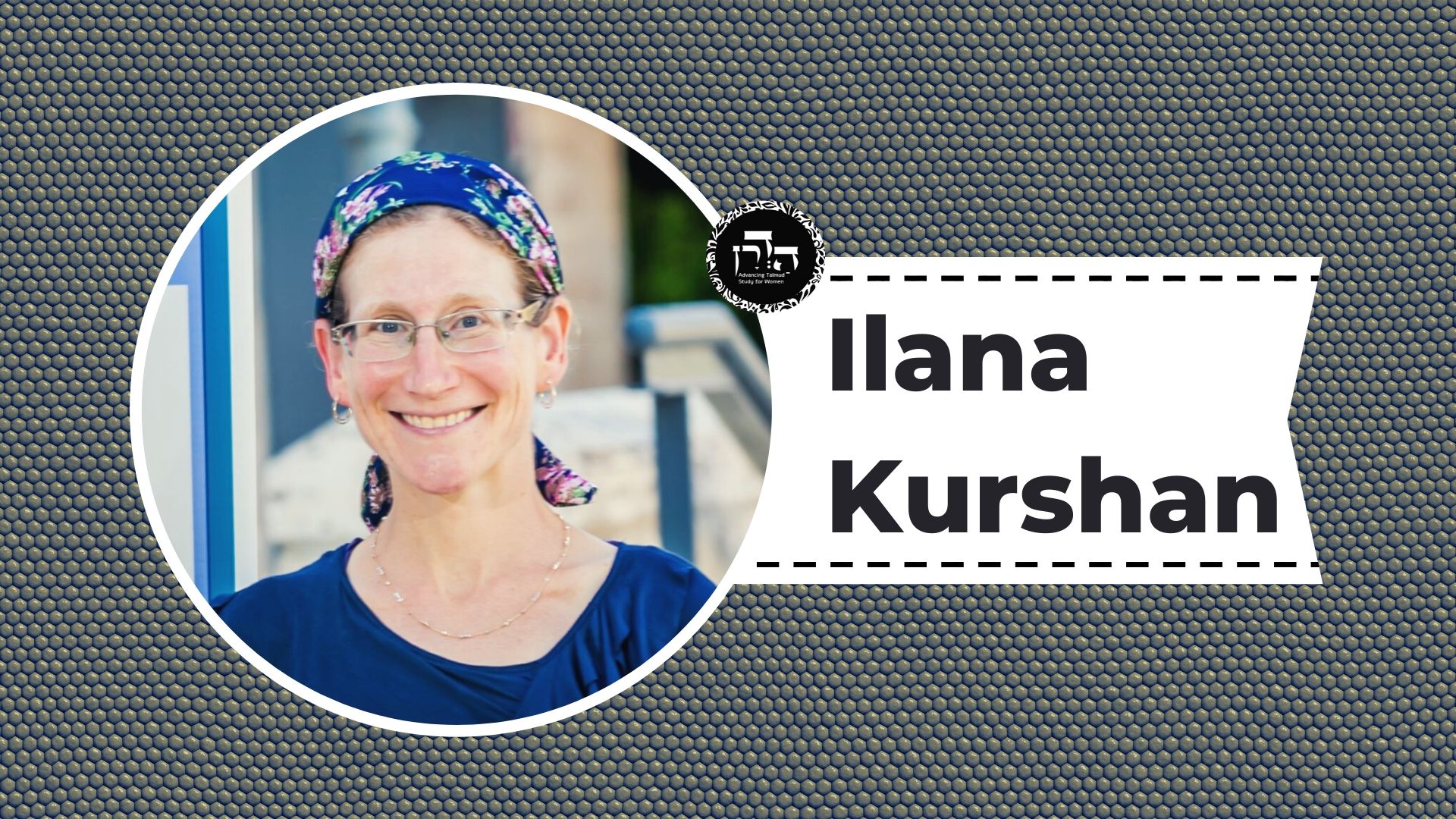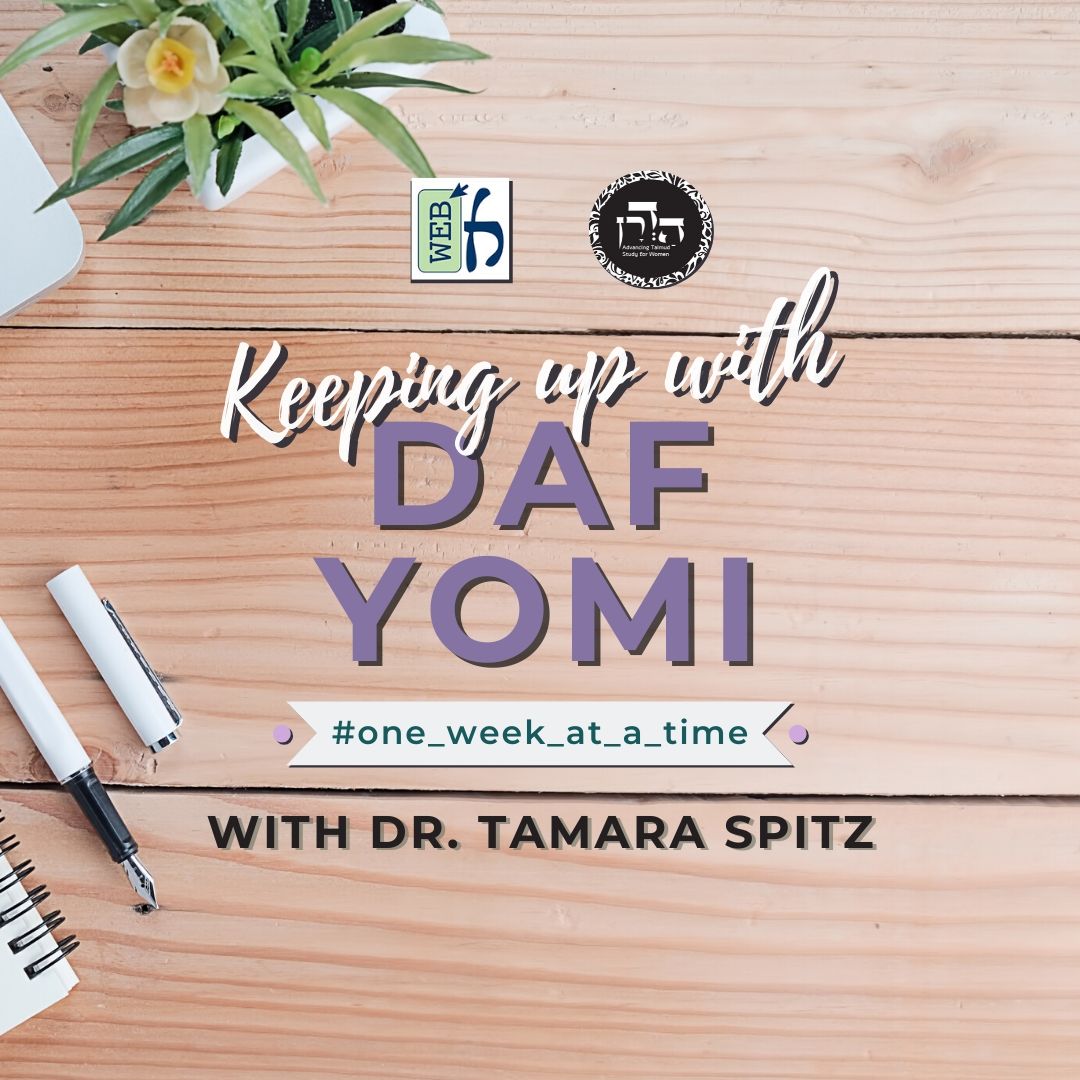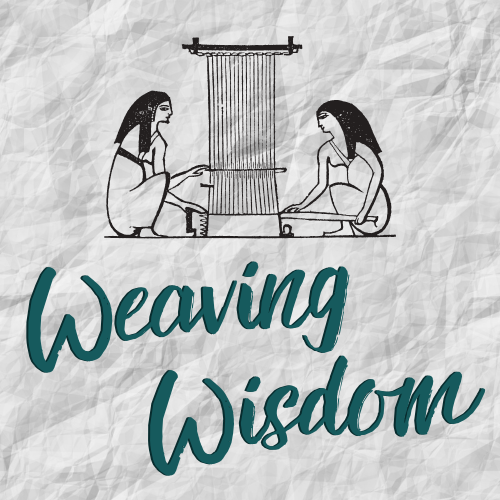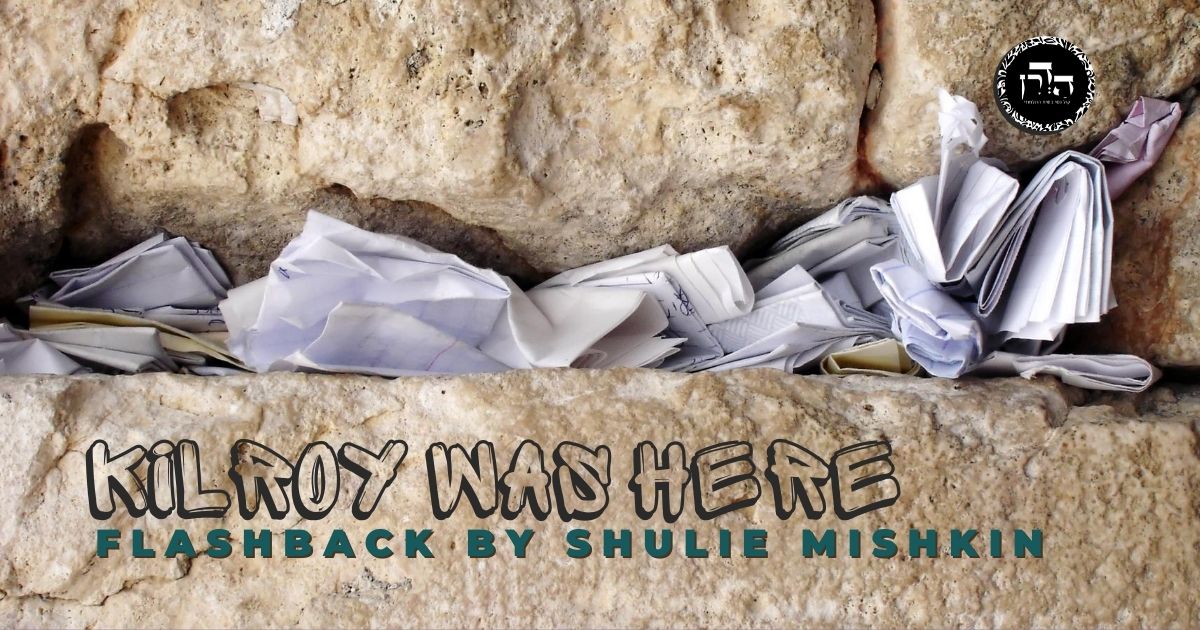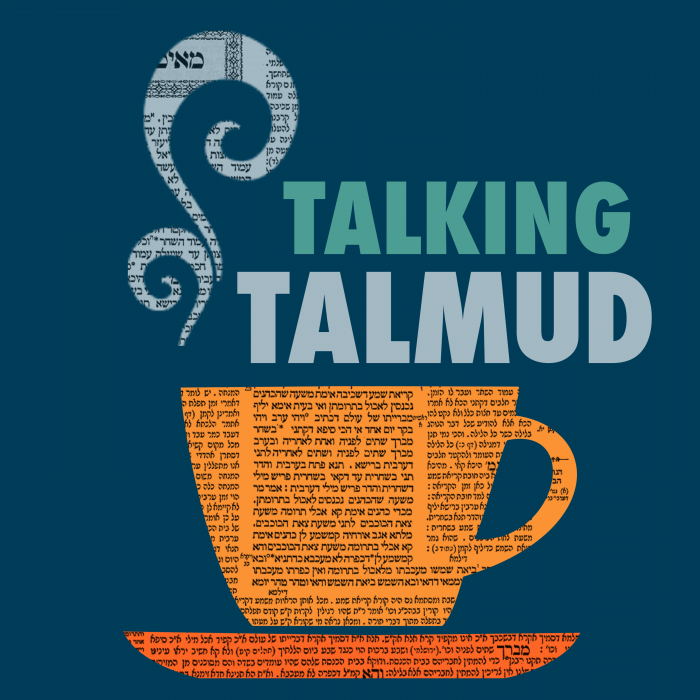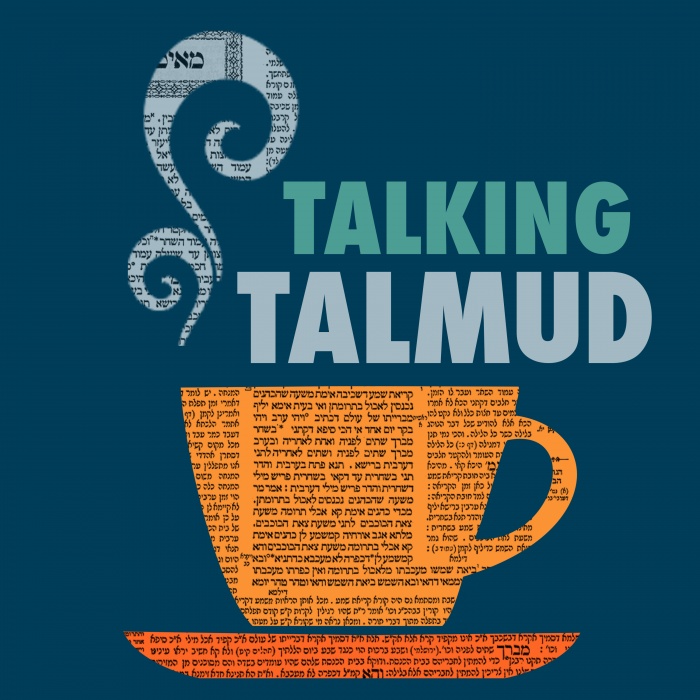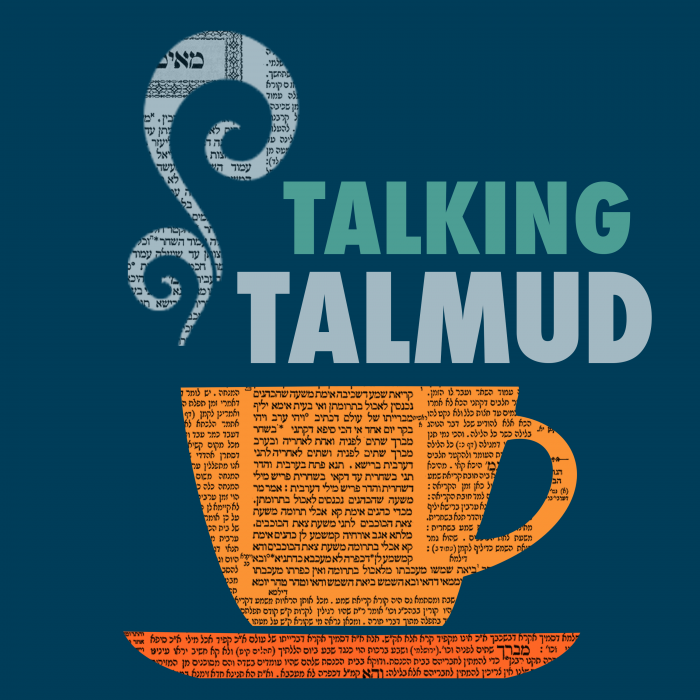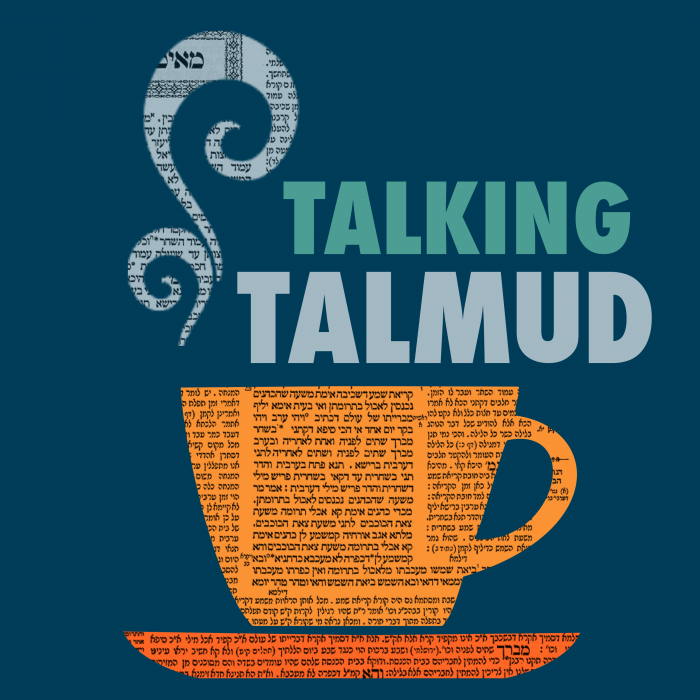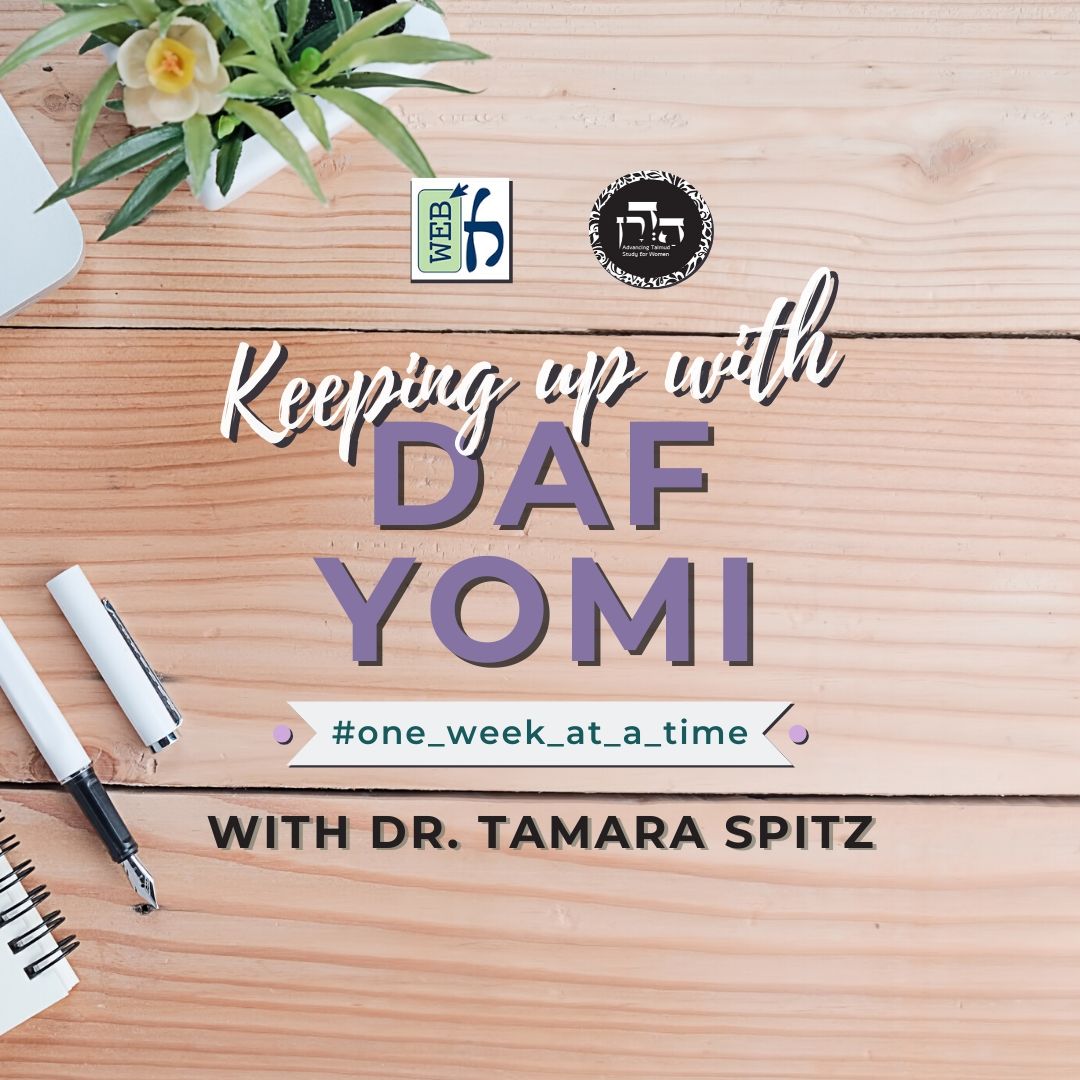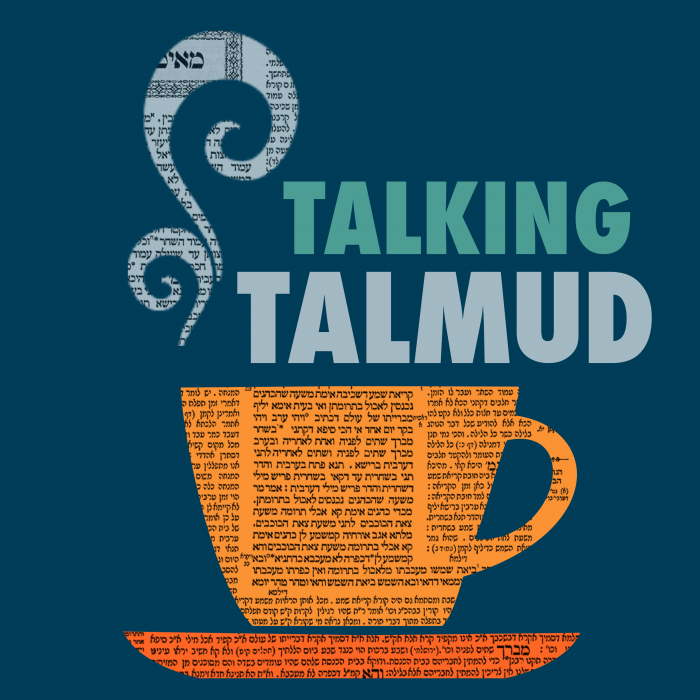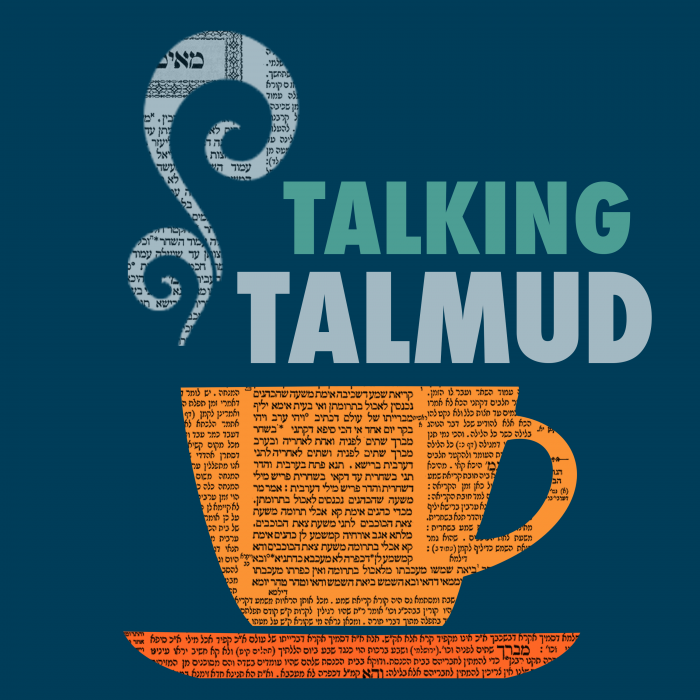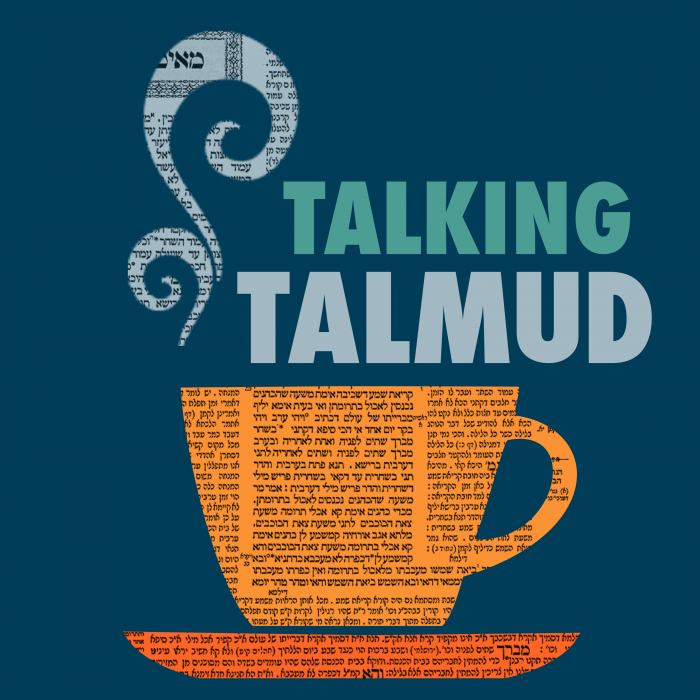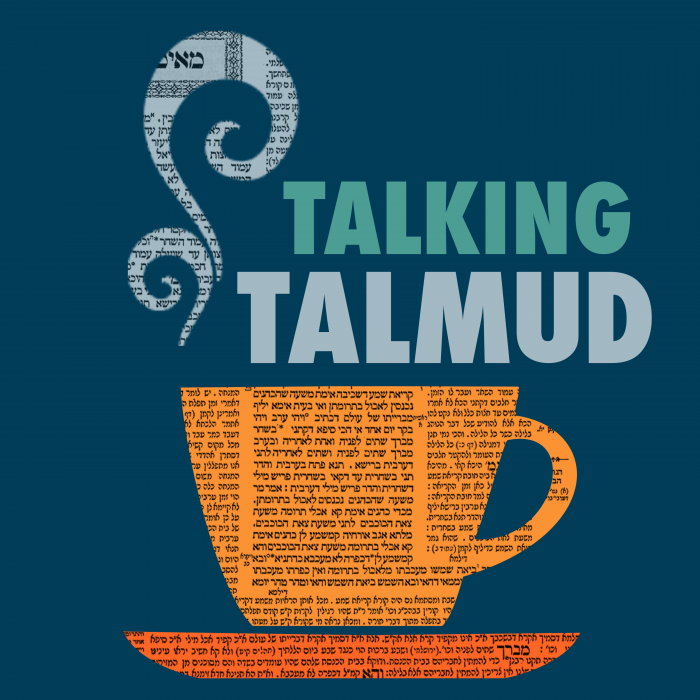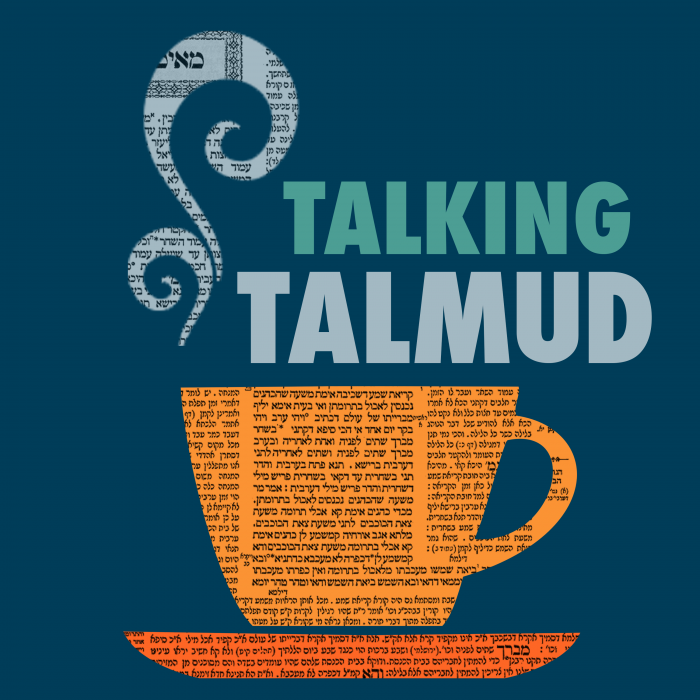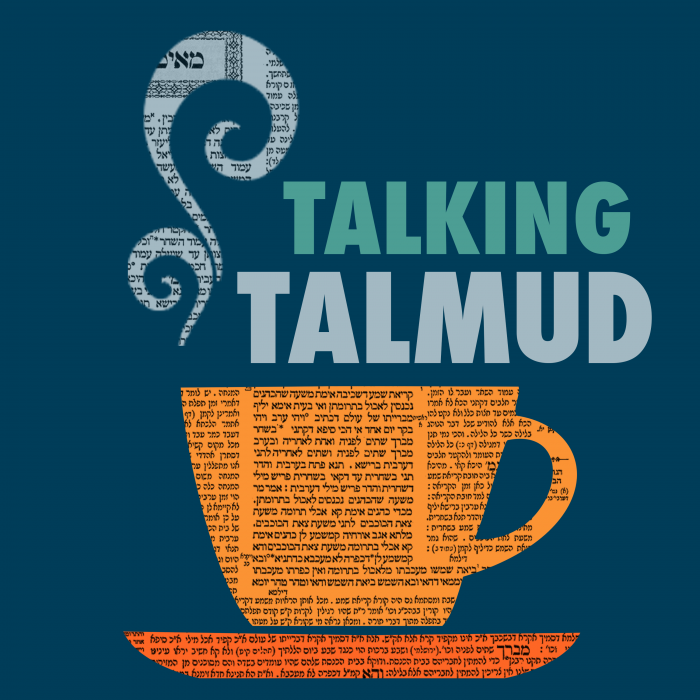Shabbat 147
הַמְנַעֵר טַלִּיתוֹ בְּשַׁבָּת — חַיָּיב חַטָּאת. וְלָא אֲמַרַן אֶלָּא בְּחַדְתֵי, אֲבָל בְּעַתִּיקֵי — לֵית לַן בַּהּ. וְלָא אֲמַרַן אֶלָּא בְּאוּכָּמֵי, אֲבָל בְּחִיוָּרֵי וְסוּמָּקֵי — לֵית לַן בַּהּ, וְהוּא דְּקָפֵיד עֲלַיְיהוּ.
One who shakes his cloak on Shabbat to remove dust that collected on it is liable to bring a sin-offering for violating the prohibition of laundering. The Gemara qualifies this ruling: We only stated this halakha with regard to new garments, but with regard to old garments, we have no problem with this behavior. And we only stated this with regard to black garments, but with regard to white or red garments, we have no problem, as shaking off the dust would not be prohibited. And this prohibition applies only when one is particular about keeping them clean, but if one does not insist on wearing clean garments, we have no problem with it, i.e., it is not prohibited to shake off the dust.
עוּלָּא אִיקְּלַע לְפוּמְבְּדִיתָא, חֲזָא רַבָּנַן דְּקָא מְנַפְּצִי גְּלִימַיְיהוּ, אָמַר: קָמְחַלְּלִין רַבָּנַן שַׁבְּתָא. אֲמַר לְהוּ רַב יְהוּדָה: נְפוּצוּ לֵיהּ בְּאַפֵּיהּ, אֲנַן לָא קָפְדִינַן מִידֵּי.
The Gemara relates that Ulla happened to come to Pumbedita, and while there he saw rabbis shaking their cloaks to remove dust. He said: The Rabbis are desecrating Shabbat. Rav Yehuda said to the Rabbis whom Ulla criticized: You may continue to shake your cloaks in his presence. We are not at all particular about this, and it is therefore permitted for us to shake the dust from our cloaks.
אַבָּיֵי הֲוָה קָאֵי קַמֵּיהּ דְּרַב יוֹסֵף. אֲמַר לֵיהּ: הַב לִי כּוּמְתַּאי. [חֲזָא דְּאִיכָּא] טַלָּא עֲלֵיהּ, הֲוָה קָמְחַסֵּם לְמִיתְּבֵהּ לֵיהּ. אֲמַר לֵיהּ: נְפוֹץ שְׁדִי, אֲנַן לָא קָפְדִינַן מִידֵּי.
The Gemara also relates that Abaye was standing before Rav Yosef. Rav Yosef said to him: Give me my hat. Abaye saw that there was dew on it, and he hesitated to give it to him, because he feared violating a prohibition by shaking off the dew. Rav Yosef said to him: Shake off the dew and throw me the hat; we are not at all particular about the cleanliness of the hat, and it is therefore permitted to shake off the dew.
אָמַר רַב יִצְחָק בַּר יוֹסֵף אָמַר רַבִּי יוֹחָנָן: הַיּוֹצֵא בְּטַלִּית מְקוּפֶּלֶת מוּנַּחַת לוֹ עַל כְּתֵיפוֹ בְּשַׁבָּת — חַיָּיב חַטָּאת. תַּנְיָא נָמֵי הָכִי: סוֹחֲרֵי כְּסוּת הַיּוֹצְאִים בְּטַלִּיתוֹת מְקוּפָּלוֹת וּמוּנָּחוֹת עַל כְּתֵיפָן בַּשַּׁבָּת — חַיָּיבִין חַטָּאת. וְלֹא סוֹחֲרֵי כְּסוּת בִּלְבַד אָמְרוּ, אֶלָּא כָּל אָדָם. אֶלָּא שֶׁדַּרְכָּן שֶׁל מוֹכְרִין לָצֵאת כָּךְ.
Rav Yitzḥak bar Yosef said that Rabbi Yoḥanan said: One who goes out with a cloak folded and resting on his shoulder on Shabbat is liable to bring a sin-offering for carrying in the public domain. This ruling was also taught in a baraita: Clothing merchants who go outside with cloaks folded and resting on their shoulders on Shabbat are liable to bring a sin-offering. And they did not say this only with regard to clothing merchants; rather, any person is liable for this transgression, and they only stated the halakha in these terms because it is the usual manner for merchants to go out this way.
וְחֶנְוָנִי הַיּוֹצֵא בְּמָעוֹת הַצְּרוּרִין לוֹ בִּסְדִינוֹ — חַיָּיב חַטָּאת. וְלֹא חֶנְוָנִי בִּלְבַד אָמְרוּ, אֶלָּא כָּל אָדָם. אֶלָּא שֶׁדַּרְכּוֹ שֶׁל חֶנְוָנִי לָצֵאת כָּךְ. וְהָרָטָנִין יוֹצְאִין בְּסוּדָרִין שֶׁעַל כְּתֵיפָן. וְלֹא רָטָנִין בִּלְבַד אָמְרוּ, אֶלָּא כָּל אָדָם. אֶלָּא שֶׁדַּרְכָּן שֶׁל רָטָנִין לָצֵאת בְּכָךְ.
And likewise, a shopkeeper who goes out with coins bound in his cloak is liable to bring a sin-offering. And they did not say this only with regard to a shopkeeper; rather, any person is liable for this, and they only stated the halakha in these terms because it is the usual manner of a shopkeeper to go out this way. And runners, i.e., foot messengers, may go out on Shabbat with scarves on their shoulders, because this is how they typically wear them. And they did not say this only with regard to runners; rather, any person is permitted to do this, but it is simply the usual manner of runners to go out this way.
אָמַר רַבִּי יְהוּדָה: מַעֲשֶׂה בְּהוּרְקָנוֹס בְּנוֹ שֶׁל רַבִּי אֱלִיעֶזֶר בֶּן הוּרְקָנוֹס שֶׁיָּצָא בְּסוּדָר שֶׁעַל כְּתֵיפוֹ בַּשַּׁבָּת, אֶלָּא שֶׁנִּימָא כְּרוּכָה לוֹ בְּאֶצְבָּעוֹ, וּכְשֶׁבָּא הַדָּבָר לִפְנֵי חֲכָמִים, אָמְרוּ: אֲפִילּוּ אֵין נִימָא כְּרוּכָה לוֹ בְּאֶצְבָּעוֹ. דָּרֵשׁ רַב נַחְמָן בַּר רַב חִסְדָּא מִשְּׁמֵיהּ דְּרַב חִסְדָּא: הֲלָכָה אַף עַל פִּי שֶׁאֵין נִימָא כְּרוּכָה לוֹ בְּאֶצְבְּעוֹתָיו.
Rabbi Yehuda said: There was an incident involving Hyrcanus, son of Rabbi Eliezer ben Hyrcanus, who went outside with a scarf on his shoulder on Shabbat. However, a thread from the garment was tied around his finger so that the garment would not fall. When this matter came before the Sages, they said: It is permitted to go out in that manner even if a thread is not tied around one’s finger. And likewise, Rav Naḥman bar Rav Ḥisda taught in the name of Rav Ḥisda: The halakha is that one may go outside with a garment around one’s shoulders even if a thread from the garment is not tied around one’s finger.
עוּלָּא אִיקְּלַע לְבֵי אַסִּי בַּר הִינִי, בְּעוֹ מִינֵּיהּ: מַהוּ לַעֲשׂוֹת מַרְזֵב בְּשַׁבָּת? אֲמַר לְהוּ, הָכִי אָמַר רַבִּי אִלְעַי: אָסוּר לַעֲשׂוֹת מַרְזֵב בְּשַׁבָּת. מַאי מַרְזֵב? אָמַר רַבִּי זֵירָא: כִּיסֵי בָּבְלָיָיתָא.
Ulla happened to come to the house of Asi bar Hini. The members of the household asked him: What is the halakha: Is it permitted to make a spout of one’s garment on Shabbat? Ulla said to them that this is what Rabbi Elai said: It is prohibited to make a spout on Shabbat. The Gemara asks: What is the spout referred to here? Rabbi Zeira said: It is referring to Babylonian pockets, which were formed by lifting up the bottom of the cloaks and tying them to their shoulders to make pocket-like folds in their garments.
רַבִּי יִרְמְיָה הֲוָה יָתֵיב קַמֵּיהּ דְּרַבִּי זֵירָא. אֲמַר לֵיהּ: הָכִי מַאי? אֲמַר לֵיהּ: אָסוּר. וְהָכִי מַאי? אֲמַר לֵיהּ: אָסוּר. אָמַר רַב פָּפָּא: נְקוֹט הַאי כְּלָלָא בִּידָךְ: כׇּל אַדַּעְתָּא לְכַנּוֹפֵי — אָסוּר, כֹּל דִּלְהִתְנָאוֹת — שְׁרֵי. כִּי הָא דְּרַב שִׁישָׁא בְּרֵיהּ דְּרַב אִידִי מִתְנָאֶה בִּסְדִינוֹ הֲוָה.
The Gemara relates that Rabbi Yirmeya was sitting before Rabbi Zeira and showed him a certain fold and said to him: What is the halakha with regard to this kind of fold on Shabbat? He said to him: It is prohibited to make it on Shabbat. He then showed him another fold and asked: And what is the halakha with regard to this? He said to him: It is prohibited. Rav Pappa said: Grasp this principle: Any fold made to gather one’s clothing from the ground is prohibited, and any fold that is merely to beautify oneself is permitted, as the precedent of Rav Sheisha, son of Rav Idi, who was beautifying himself with his garment by folding it on his shoulders.
כִּי אֲתָא רַב דִּימִי, אָמַר: פַּעַם אַחַת יָצָא רַבִּי לַשָּׂדֶה וְהָיוּ שְׁנֵי צִידֵּי טַלִּיתוֹ מוּנָּחִין עַל כְּתֵיפוֹ. אָמַר לְפָנָיו יְהוֹשֻׁעַ בֶּן זֵירוּז בֶּן חָמִיו שֶׁל רַבִּי מֵאִיר: בָּזוֹ לֹא חִיֵּיב רַבִּי מֵאִיר חַטָּאת? אָמַר לוֹ: דִּקְדֵּק רַבִּי מֵאִיר עַד כָּאן? שִׁלְשֵׁל רַבִּי טַלִּיתוֹ.
When Rav Dimi came from Eretz Yisrael to Babylonia, he said: On one occasion, Rabbi Yehuda HaNasi went out into a field, and the two sides of his cloak were resting on his shoulders. Yehoshua ben Zeiruz, son of the father-in-law of Rabbi Meir, said before Rabbi Yehuda HaNasi: In a case like this, didn’t Rabbi Meir hold one liable to bring a sin-offering? Rabbi said to him: Was Rabbi Meir exacting to that extent, i.e., he considered wearing a garment in this fashion to be carrying on Shabbat? If so, it is preferable to avoid questionable practices; immediately Rabbi Yehuda HaNasi lowered his cloak from his shoulders.
כִּי אֲתָא רָבִין אָמַר: לֹא יְהוֹשֻׁעַ בֶּן זֵירוּז הֲוָה אֶלָּא יְהוֹשֻׁעַ בֶּן כְּפוֹסַאי הָיָה, חֲתָנוֹ שֶׁל רַבִּי עֲקִיבָא, אָמַר: בָּזוֹ לֹא חִיֵּיב רַבִּי עֲקִיבָא חַטָּאת? אָמַר לוֹ: דִּקְדֵּק רַבִּי עֲקִיבָא עַד כָּאן? שִׁלְשֵׁל רַבִּי טַלִּיתוֹ. כִּי אֲתָא רַב שְׁמוּאֵל בַּר רַב יְהוּדָה אָמַר: ״נִשְׁאַל״ אִיתְּמַר.
When Ravin came from Eretz Yisrael to Babylonia he said: It was not Yehoshua ben Zeiruz; rather, it was Yehoshua ben Kefusai, Rabbi Akiva’s son-in-law, and he said: In a case like this, didn’t Rabbi Akiva hold one liable to bring a sin-offering? Rabbi Yehuda HaNasi said to him: Was Rabbi Akiva exacting to that extent? If so, it is preferable to avoid questionable practices. Immediately, Rabbi Yehuda HaNasi lowered his cloak from his shoulders. When Rav Shmuel bar Rav Yehuda came, he said: This is not what happened, as Rabbi Yehuda HaNasi himself did not wear his cloak folded up on his shoulders on Shabbat. Rather it was stated that Rabbi was asked, meaning that this question came before him, and he wanted to rule leniently, until he was informed that some of the greatest Sages of the generation ruled stringently.
מַתְנִי׳ הָרוֹחֵץ בְּמֵי מְעָרָה וּבְמֵי טְבֶרְיָא וְנִסְתַּפֵּג אֲפִילּוּ בְּעֶשֶׂר אֲלוֹנְטִיאוֹת — לֹא יְבִיאֵם בְּיָדוֹ. אֲבָל עֲשָׂרָה בְּנֵי אָדָם מִסְתַּפְּגִין בַּאֲלוּנְטִית אַחַת, פְּנֵיהֶם יְדֵיהֶם וְרַגְלֵיהֶם, וּמְבִיאִין אוֹתָן בְּיָדָן.
MISHNA: One who bathes on Shabbat in a ritual bath formed by cave water or in the water of Tiberias and dried himself even with ten towels may not carry them in his hand, lest he forget that it is Shabbat and wring the water from them. However, ten people may use one towel to dry their faces, hands, and feet, and may carry them in their hands. Even though in this case the towel would be quite wet, it is permitted to handle the towel because there are several people present, and they will remind each other that it is prohibited to wring a towel on Shabbat.
סָכִין וּמְמַשְׁמְשִׁין, אֲבָל לֹא מִתְעַמְּלִין. וְלֹא מִתְגָּרְרִין. אֵין יוֹרְדִין לְקוֹרְדִימָא, וְאֵין עוֹשִׂין אַפִּיקְטְוִיזִין, וְאֵין מְעַצְּבִין אֶת הַקָּטָן, וְאֵין מַחֲזִירִין אֶת הַשֶּׁבֶר, מִי שֶׁנִּפְרְקָה יָדוֹ וְרַגְלוֹ לֹא יִטְרְפֵם בְּצוֹנֵן, אֲבָל רוֹחֵץ הוּא כְּדַרְכּוֹ, וְאִם נִתְרַפֵּא — נִתְרַפֵּא.
Apropos the waters of Tiberias, the mishna discusses the halakhot of bathing and medicine on Shabbat. One may smear oil on his body and gently rub his body with his hand; however, one may not exert himself with vigorous massage or by means of exercise in order to benefit from the therapeutic effects of sweating; and one may not scrape the oil off with a scraper. Additionally, one may not go into a swampy river [kurdima], on Shabbat. And one may not make a drug to induce vomiting, nor may one align a young infant’s bones to straighten them, nor may one reset a break in a bone. One whose hand or foot was dislocated may not move them about vigorously in cold water, which is the standard method of treatment; however, one may wash the limb in the typical manner, and if one is cured through this washing, he is cured.
גְּמָ׳ קָתָנֵי מֵי מְעָרָה דּוּמְיָא דְּמֵי טְבֶרְיָא: מָה מֵי טְבֶרְיָא חַמִּין — אַף מֵי מְעָרָה חַמִּין. ״הָרוֹחֵץ״: דִּיעֲבַד — אִין, לְכַתְּחִילָּה — לָא. מִכְּלָל
GEMARA: The tanna of the mishna teaches the case of cave water that is similar to the case of water of Tiberias; just as the water of Tiberias is hot, so too the cave water is hot. The Gemara also infers from the formulation of the mishna: With regard to one who bathes, after the fact, yes, one may dry himself; however, one may not bathe ab initio, as had the mishna intended to permit bathing ab initio it would have said: One may bathe in cave water. This proves by inference
דִּלְהִשְׁתַּטֵּף כׇּל גּוּפוֹ אֲפִילּוּ לְכַתְּחִילָּה שַׁפִּיר דָּמֵי. מַנִּי? רַבִּי שִׁמְעוֹן הִיא. דְּתַנְיָא: לֹא יִשְׁתַּטֵּף אָדָם בֵּין בְּחַמִּין בֵּין בְּצוֹנֵן, דִּבְרֵי רַבִּי מֵאִיר. רַבִּי שִׁמְעוֹן מַתִּיר. רַבִּי יְהוּדָה אוֹמֵר: בְּחַמִּין — אָסוּר, בְּצוֹנֵן — מוּתָּר.
that rinsing one’s entire body by pouring water on it rather than bathing in the standard fashion may well be done even ab initio. The Gemara asks: According to whose opinion is our mishna? The Gemara answers: It is in accordance with the opinion of Rabbi Shimon, as it was taught in a baraita: One may not rinse himself on Shabbat, neither with hot water nor with cold water; this is the statement of Rabbi Meir. Rabbi Shimon permits rinsing one’s body even with hot water. Rabbi Yehuda says that there is a distinction: With hot water it is prohibited and with cold water it is permitted.
וְנִסְתַּפֵּג אֲפִילּוּ בְּעֶשֶׂר אֲלוּנְטִיּוֹת. רֵישָׁא רְבוּתָא קָא מַשְׁמַע לַן וְסֵיפָא רְבוּתָא קָא מַשְׁמַע לַן. רֵישָׁא רְבוּתָא קָא מַשְׁמַע לַן, דַּאֲפִילּוּ הָנֵי דְּלָא נְפִישִׁי בְּהוּ מַיָּא, כֵּיוָן דְּחַד הוּא — אָתֵי לִידֵי סְחִיטָה, וְסֵיפָא רְבוּתָא קָא מַשְׁמַע לַן, אֲפִילּוּ הָנֵי דִּנְפִישִׁי בְּהוּ מַיָּא, כֵּיוָן דְּרַבִּים נִינְהוּ — מַדְכְּרִי אַהֲדָדֵי.
The mishna addressed the permissibility of drying oneself with a towel after bathing on Shabbat, and added the phrase: And dried himself off even with ten towels. The Gemara comments on the formulation of the mishna: The first clause teaches us a novel concept, and the latter clause teaches us a novel concept. The Gemara explains: The first clause: One who…dried himself even with ten towels may not carry them, teaches us a novel concept, that the prohibition applies even to these towels, which do not have much water absorbed in them. The reason for this is that since he is one person, he may come to squeeze them. And the latter clause teaches us a novel concept, that even these ten people may carry the towel that they have all used, despite the fact that they have absorbed much water and the towel is very wet. The reason for this is that since they are many people, they remind each other not to wring the towel.
תָּנוּ רַבָּנַן: מִסְתַּפֵּג אָדָם בַּאֲלוּנְטִית וּמַנִּיחָהּ בַּחַלּוֹן. וְלֹא יִמְסְרֶנָּה לָאוֹלְיָירִין, מִפְּנֵי שֶׁחֲשׁוּדִים עַל אוֹתוֹ דָּבָר. רַבִּי שִׁמְעוֹן אוֹמֵר: מִסְתַּפֵּג בַּאֲלוּנְטִית אַחַת וּמְבִיאָהּ בְּיָדוֹ לְתוֹךְ בֵּיתוֹ.
The Sages taught in a baraita: One may dry himself with a towel on Shabbat and leave it in the window of the bathhouse; and one may not give it to the bath attendants, because they are suspect in this matter of wringing out towels. Rabbi Shimon says: One may dry himself with a single towel and carry it in his hand into his home, and there is no concern lest he wring out the water.
אֲמַר לֵיהּ אַבָּיֵי לְרַב יוֹסֵף: הִלְכְתָא מַאי? אֲמַר לֵיהּ: הָא רַבִּי שִׁמְעוֹן, הָא רַבִּי, הָא שְׁמוּאֵל, הָא רַבִּי יוֹחָנָן.
Abaye said to Rav Yosef: What is the halakha with regard to carrying a towel home after using it to dry himself? Rav Yosef said to him: There is Rabbi Shimon, there is Rabbi Yehuda HaNasi, there is Shmuel, and there is Rabbi Yoḥanan, all of whom permit it.
רַבִּי שִׁמְעוֹן הָא דַּאֲמַרַן. רַבִּי — דְּתַנְיָא, אָמַר רַבִּי: כְּשֶׁהָיִינוּ לְמֵדִין תּוֹרָה אֵצֶל רַבִּי שִׁמְעוֹן בִּתְקוֹעַ, הָיִינוּ מַעֲלִין שֶׁמֶן וַאֲלוּנְטִית מֵחָצֵר לַגַּג וּמִגַּג לְקַרְפֵּף, עַד שֶׁהָיִינוּ מַגִּיעִין אֵצֶל מַעְיָן שֶׁהָיִינוּ רוֹחֲצִין בּוֹ. שְׁמוּאֵל — דְּאָמַר רַב יְהוּדָה אָמַר שְׁמוּאֵל: מִסְתַּפֵּג אָדָם בַּאֲלוּנְטִית וּמְבִיאָהּ בְּיָדוֹ לְתוֹךְ בֵּיתוֹ. רַבִּי יוֹחָנָן — דְּאָמַר רַבִּי חִיָּיא בַּר אַבָּא אָמַר רַבִּי יוֹחָנָן: הֲלָכָה מִסְתַּפֵּג אָדָם בַּאֲלוּנְטִית וּמְבִיאָהּ בְּיָדוֹ לְתוֹךְ בֵּיתוֹ.
The Gemara elaborates: Rabbi Shimon rules leniently, as we have already stated that he permits bathing and drying oneself with a towel and then bringing it home. Rabbi Yehuda HaNasi agrees, as it was taught in a baraita that Rabbi Yehuda HaNasi said: When we would study Torah with Rabbi Shimon in Tekoa, we would carry oil and towels from the courtyard to the roof and from the roof into an enclosure similar to a courtyard until we reached the spring in which we would bathe, without passing through a public domain. In Rabbi Yehuda HaNasi’s opinion, it is permitted to carry a towel both before and after using it to dry oneself. Shmuel is also lenient, as Rav Yehuda said that Shmuel said explicitly: One may dry himself with a towel and carry it in his hand into his home. Rabbi Yoḥanan is also lenient, as Rabbi Ḥiyya bar Abba said that Rabbi Yoḥanan said: The halakha is that one may dry himself with a towel and carry it in his hand into his house.
וּמִי אָמַר רַבִּי יוֹחָנָן הָכִי? וְהָאָמַר רַבִּי יוֹחָנָן: הֲלָכָה כִּסְתַם מִשְׁנָה, וּתְנַן: וְנִסְתַּפֵּג אֲפִילּוּ בְּעֶשֶׂר אֲלוּנְטִיּוֹת לֹא יְבִיאֵם בְּיָדוֹ! הָהוּא — כְּבֶן חֲכִינַאי מַתְנֵי לַהּ.
The Gemara challenges this last point: And did Rabbi Yoḥanan really say that? Didn’t Rabbi Yoḥanan state a principle that the halakha is in accordance with an unattributed mishna, in which the name of the tanna who issued the rulings does not appear? And we learned explicitly in our mishna, which is unattributed, that if one bathed and dried himself even with ten towels, he may not carry them in his hand. The Gemara answers: Rabbi Yoḥanan’s version of the mishna does not teach this halakha unattributed; rather, it teaches it in accordance with the opinion of ben Ḥakhinai, which is the opinion of an individual Sage that is not the accepted halakha.
אָמַר רַבִּי חִיָּיא בַּר אַבָּא אָמַר רַבִּי יוֹחָנָן: הָאוֹלְיָירִין מְבִיאִין בַּלָּרֵי נָשִׁים לְבֵי בָנֵי, וּבִלְבַד שֶׁיִּתְכַּסֶּה בָּהֶן רֹאשָׁן וְרוּבָּן. סִכְנִיתָא צָרִיךְ לְקַשֵּׁר שְׁנֵי רָאשֶׁיהָ לְמַטָּה. אָמַר רַבִּי חִיָּיא בַּר אַבָּא אָמַר רַבִּי יוֹחָנָן: לְמַטָּה מִכְּתֵפַיִים. אֲמַר לְהוּ רָבָא לִבְנֵי מָחוֹזָא: כִּי מְעַבְּרִיתוּ מָאנֵי לִבְנֵי חֵילָא, שַׁרְבִּיבוּ בְּהוּ לְמַטָּה מִכְּתֵפַיִם.
Rabbi Ḥiyya bar Abba said that Rabbi Yoḥanan said: Bath attendants may bring women’s bathing garments [balarei] to the bathhouse on Shabbat as long as they cover their heads and the majority of their bodies with them, so that they are being worn rather than carried. With regard to the large scarf that is worn draped over one’s shoulders, one must tie its two ends together below so that it will not fall. Rabbi Ḥiyya bar Abba said that Rabbi Yoḥanan said: This means that one must tie it below the shoulders. In a similar vein, Rava said to the inhabitants of his city, Meḥoza: When you transport clothing for the soldiers who are staying in the city, extend them beneath your shoulders so that you will wear them like a garment and not simply carry them.
סָכִין וּמְמַשְׁמְשִׁין. תָּנוּ רַבָּנַן: סָכִין וּמְמַשְׁמְשִׁין בִּבְנֵי מֵעַיִים בְּשַׁבָּת, וּבִלְבַד שֶׁלֹּא יַעֲשֶׂה כְּדֶרֶךְ שֶׁהוּא עוֹשֶׂה בַּחוֹל. הֵיכִי עָבֵיד? רַבִּי חָמָא בַּר חֲנִינָא אָמַר: סָךְ וְאַחַר כָּךְ מְמַשְׁמֵשׁ. רַבִּי יוֹחָנָן אָמַר: סָךְ וּמְמַשְׁמֵשׁ בְּבַת אַחַת.
We learned in the mishna: One may smear oil and rub a person’s body by hand on Shabbat. The Sages taught in a baraita: One may smear oil on and rub his intestinal area on Shabbat, and it is not a prohibited form of healing, provided he does not do so in the manner in which he does during the week. The Gemara asks: How then does one do this on Shabbat? Rabbi Ḥama bar Ḥanina said: One first smears oil and afterward rubs the body. And Rabbi Yoḥanan said: One smears oil and rubs simultaneously.
אֲבָל לֹא מִתְעַמְּלִין. אָמַר רַבִּי חִיָּיא בַּר אַבָּא אָמַר רַבִּי יוֹחָנָן: אָסוּר לַעֲמוֹד בְּקַרְקָעִיתָהּ שֶׁל דְּיוֹמְסֵת מִפְּנֵי שֶׁמְעַמֶּלֶת וּמְרַפָּא. אָמַר רַבִּי יְהוּדָה אָמַר רַב: כׇּל יָמֶיהָ שֶׁל דְּיוֹמְסֵת עֶשְׂרִים וְאֶחָד יוֹם וַעֲצֶרֶת מִן הַמִּנְיָן. אִיבַּעְיָא לְהוּ: עֲצֶרֶת בַּתְּחִלָּה לְהַאי גִּיסָא, אוֹ לְהַאי גִּיסָא? תָּא שְׁמַע דְּאָמַר שְׁמוּאֵל: כּוּלְּהוּ שַׁקְיָינֵי מִדִּיבְחָא וְעַד עֲצַרְתָּא מְעַלּוּ! דִּילְמָא הָתָם הוּא דְּכַמָּה דְּקָרִיר עָלְמָא מְעַלֵּי, אֲבָל הָכָא מִשּׁוּם הַבְלָא הוּא, כֵּיוָן דְּחַמִּים עָלְמָא טְפֵי מְעַלֵּי.
The mishna taught: However, one may not exert himself on Shabbat. Rabbi Ḥiyya bar Abba said that Rabbi Yoḥanan said: It is prohibited to stand on the floor of the therapeutic bathhouse of Deyomset on Shabbat, because it warms and heals even if one is not bathing or exerting himself. Rav Yehuda said that Rav said: The entire period that bathing in Deyomset is therapeutic is twenty-one days; and Shavuot is included. The Gemara raises a dilemma: Is Shavuot on this side, at the beginning, of the twenty-one-day period, or on this side, at the end, of the twenty-one days? Come and hear a resolution to this dilemma from that which Shmuel said: All medicinal drinks are effective from Passover to Shavuot; apparently, the waters of the Deyomset are therapeutic in the time period leading up to Shavuot. The Gemara rejects this proof: Perhaps there, with regard to medicinal drinks, it is so, because the cooler the world, the better these drinks heal; however, here, with regard to bathing, the therapeutic effect is due to the heat, and therefore the warmer the world, the better. The time period during which bathing is effective would only begin with Shavuot.
אָמַר רַבִּי חֶלְבּוֹ: חַמְרָא דִּפְרוֹגִיתָא וּמַיָּא דִדְיוֹמְסֵת קִיפְּחוּ עֲשֶׂרֶת הַשְּׁבָטִים מִיִּשְׂרָאֵל.
Apropos Deyomset, the Gemara cites that Rabbi Ḥelbo said: The wine of Phrygia [Perugaita] and the water of the Deyomset deprived Israel of the ten lost tribes. Because the members of these tribes were attracted to the pleasures of wine and bathing and did not occupy themselves with Torah, they were lost to the Jewish people.
רַבִּי אֶלְעָזָר בֶּן עֲרָךְ אִיקְּלַע לְהָתָם, אִימְּשִׁיךְ בָּתְרַיְיהוּ אִיעַקַּר תַּלְמוּדֵיהּ. כִּי הֲדַר אֲתָא, קָם לְמִיקְרֵי בְּסִפְרָא, בְּעָא לְמִקְרֵי ״הַחֹדֶשׁ הַזֶּה לָכֶם״, אָמַר ״הַחֵרֵשׁ הָיָה לִבָּם״. בְּעוֹ רַבָּנַן רַחֲמֵי עֲלֵיהּ וַהֲדַר תַּלְמוּדֵיהּ.
The Gemara relates that once Rabbi Elazar ben Arakh happened to come there, to Phrygia and Deyomset, and he was drawn after them, and his Torah learning was forgotten. When he returned, he stood to read from a Torah scroll and was supposed to read the verse: “This month shall be for you [haḥodesh hazeh lakhem]” (Exodus 12:2), but he had forgotten so much that he could barely remember how to read the Hebrew letters, and instead he read: Have their hearts become deaf [haḥeresh haya libbam], interchanging the similar letters reish for dalet, yod for zayin, and beit for khaf. The Sages prayed and asked for God to have mercy on him, and his learning was restored.
וְהַיְינוּ דִּתְנַן, רַבִּי נְהוֹרַאי אוֹמֵר: הֱוֵי גּוֹלֶה לִמְקוֹם תּוֹרָה וְאַל תֹּאמַר שֶׁהִיא תָּבֹא אַחֲרֶיךָ, שֶׁחֲבֵרֶיךָ יְקַיְּימוּהָ בְּיָדְךָ, וְאֶל בִּינָתְךָ אַל תִּשָּׁעֵן. תָּנָא: לֹא רַבִּי נְהוֹרַאי שְׁמוֹ, אֶלָּא רַבִּי נְחֶמְיָה שְׁמוֹ. וְאָמְרִי לַהּ, רַבִּי אֶלְעָזָר בֶּן עֲרָךְ שְׁמוֹ. וְלָמָּה נִקְרָא שְׁמוֹ רַבִּי נְהוֹרַאי? — שֶׁמַּנְהִיר עֵינֵי חֲכָמִים בַּהֲלָכָה.
And that is what we learned in a mishna that Rabbi Nehorai says: Exile yourself to a place of Torah and do not say that it will follow you, as if you are in a place of Torah, your colleagues will establish it in your hands, and do not rely on your understanding alone. It was taught: Rabbi Nehorai was not his name, but rather Rabbi Neḥemya was his name; and some say that Rabbi Elazar ben Arakh was his name and his statement was based on the personal experience of forgetting his Torah due to his failure to exile himself to a place of Torah. And why was he called Rabbi Nehorai? It was because he would illuminate [manhir] the eyes of the Sages in halakha.
אֲבָל לֹא מִתְגָּרְרִין. תָּנוּ רַבָּנַן: אֵין גּוֹרְרִין בְּמִגְרֶרֶת בַּשַּׁבָּת. רַבָּן שִׁמְעוֹן בֶּן גַּמְלִיאֵל אוֹמֵר: אִם הָיוּ רַגְלָיו מְלוּכְלָכוֹת בְּטִיט וּבְצוֹאָה — גּוֹרֵר כְּדַרְכּוֹ וְאֵינוֹ חוֹשֵׁשׁ. רַב שְׁמוּאֵל בַּר יְהוּדָה עֲבַדָא לֵיהּ אִימֵּיהּ מַגְרַרְתָּא דְכַסְפָּא.
The mishna taught: However, one may not scrape off the oil on Shabbat. The Sages taught in a baraita: One may not scrape his body with a scraper on Shabbat. Rabban Shimon ben Gamliel says: If one’s feet were dirty with mortar and excrement he may scrape them in the usual manner with a scraper and need not be concerned about violating a prohibition. Rav Shmuel bar Yehuda’s mother made him a silver scraper to use on Shabbat to distinguish it from a weekday.
אֵין יוֹרְדִין לְקוֹרְדִימָא וְכוּ׳. מַאי טַעְמָא? — מִשּׁוּם פִּיקָא.
The mishna also taught that one may not enter a swampy river full of mud on Shabbat. The Gemara explains: What is the reason for this? Due to the mud, as it is likely that one will slip and fall and come to violate the prohibitions of bathing and wringing out his clothes.
וְאֵין עוֹשִׂין אַפִּיקְטְוִיזִין בְּשַׁבָּת. אָמַר רַבָּה בַּר בַּר חָנָה אָמַר רַבִּי יוֹחָנָן: לֹא שָׁנוּ אֶלָּא בְּסַם, אֲבָל בַּיָּד — מוּתָּר. תַּנְיָא, רַבִּי נְחֶמְיָה אוֹמֵר: אַף בַּחוֹל אָסוּר מִפְּנֵי הֶפְסֵד אוֹכָלִין.
We also learned in the mishna that one may not make a drug to induce vomiting on Shabbat. Rabba bar bar Ḥana said that Rabbi Yoḥanan said: They only taught that this is prohibited with a drug, which is considered a medicine; however, inducing vomiting by hand is permitted. It was taught in a baraita that Rabbi Neḥemya says: Even during the week, if one need not vomit for medical reasons, it is prohibited to induce vomiting because it causes loss of food.
וְאֵין מְעַצְּבִין אֶת הַקָּטָן. אָמַר רַבָּה בַּר בַּר חָנָה אָמַר רַבִּי יוֹחָנָן: לַפּוֹפֵי יָנוֹקָא בְּשַׁבָּת שַׁפִּיר דָּמֵי. וְהָאֲנַן תְּנַן: אֵין מְעַצְּבִין! הָתָם בְּחוּמְרֵי שִׁדְרָה, דְּמֶיחְזֵי כְּבוֹנֶה.
And we learned in the mishna that one may not align a young infant’s bones in order to straighten them on Shabbat. Rabba bar bar Ḥana said that Rabbi Yoḥanan said: With regard to swaddling an infant on Shabbat, one may well do so. The Gemara challenges this statement: Didn’t we learn in the mishna that one may not align an infant’s bones? The Gemara answers: There, the mishna is referring to the bones, vertebrae, of the spine, because straightening them appears like the prohibited labor of building.
וְאֵין מַחֲזִירִין אֶת הַשֶּׁבֶר. אָמַר רַבִּי חָנָא בַּגְדָּתָאָה אָמַר שְׁמוּאֵל:
We also learned in the mishna that one may not reset a break in a bone on Shabbat. Rav Ḥana of Baghdad said that Shmuel said:



